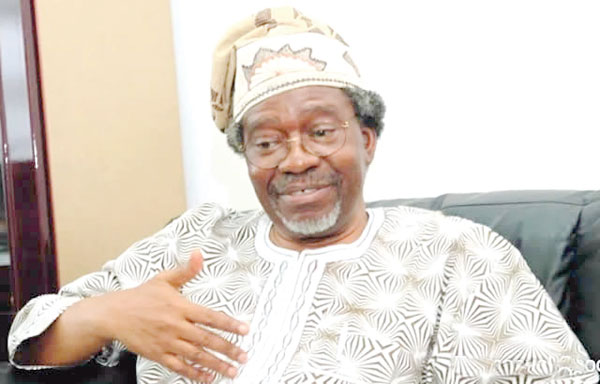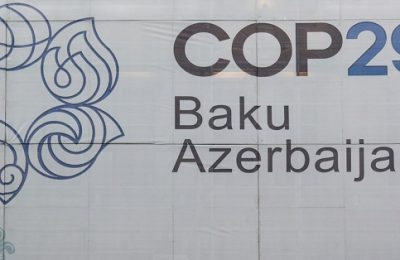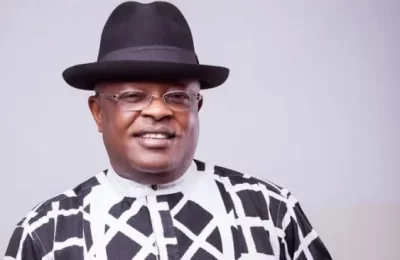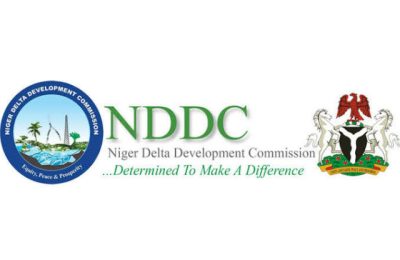Akin Oyebode is a renowned Professor of International Law and Jurispudence and pioneer Vice-Chancellor of University of Ado-Ekiti (now Ekiti State University). He bares his mind. He speaks with TUNBOSUN OGUNDARE about how Nigeria and its people fared in the 2023 and the prospects for the 2024. Excerpts:
What would you consider as a success story in Nigeria, particularly in political governance in the last 12 months?
The most significant success of the 2023 was the change of guards. That is the exchange of baton between the then President Muhammadu Buhari and President Bola Tinubu, in May.

Why is it significant?
It’s simply because it was a rancour-free political transition between the two administrations. That alone makes it newsworthy. Tinubu assumed power in May despite the doubting Thomases.
Even at that, I must also point out that there was still a problem in terms of political transition in places such as Rivers, Kano and even Plateau states. There, election tribunals are trying to wind up and complete their examinations of the electoral process, either by affirming the election results declared by the Independent National Electoral Commission (INEC) or at least, making statement on what needs to be done to enhance the electoral process in the country.

What exactly went wrong in those states in your view?
It is the inability to play according to the rules of the game and I will explain how. One of which is alluring succumb to the rule of law and court decisions. No country will progress where the courts are trivialised. The difference between life and death is in the custody of the court. Luckily, the Supreme Court, which is the apex court, has just been reconstituted and we hope that when decision is finally reached concerning Kano and Plateau states, the political economy will stabilise onward and water will find its level. But right now, there is a lot of turbulence and we have to hope, pray and wish that we survive the turbulence that is hovering over Nigeria.
Are those success stories?
No. The significant thing again is the removal of fuel subsidy and the completion of one of the refineries in Port Harcourt and the formal take-off of the Dangote Refinery in Lagos.
So, we can say that Nigeria has recorded some successes in terms of the political transition. And President Tinubu has been traveling, attending conferences towards getting more foreign direct investments into the country. I’m talking of prospective foreign investors in Nigeria’s economy. Though, we have not yet gotten the results of those trips, the signs are promising that Nigeria might have bailed itself out of the economic conundrum that we have faced with.
How about challenges?
President Tinubu has put in place a bloated cabinet of 40 and so many assistants. Not many Nigerians are impressed by such a huge number. But I can only ask people to grant the president the benefit of the doubt over such matter. He is the one who wears the shoe and he knows where the shoe pinches. So, he might succeed in effecting the turn-around of the political affairs of the country.
The other shortcoming is the mass impoverishment in the land. Things are hard in the country. Getting meals to the table for most families is a difficult thing. People cannot really rejoice as the cost and standard of living.
Then, what about prospects for 2024?
We can only be optimistic and hope for a better 2024 and at the same time make adequate preparation for the worse, because the cost of borrowing funds to run the government has risen substantially. You know it is like a beggar democracy where you don’t have adequate wherewithal to implement various policies of government.
So, it is a structural deficiency in terms of wherewithal to enable Nigerians to put food on the table three times a day. This could be a little bit discouraging and non-enthusiastic.
What could you make out of the persistent high level of insecurity, youth unemployment and hunger in the country?
All these are big issues that we grappled with over the years. Let’s start with the insecurity issue across the land, especially in the North-East, North-West and to some extent North-Central and South-East. The level of insecurity is still very high in those places. Though, insecurity has not been effectively combated in the country generally. The budget has provided substantial allocation to security. The next thing apart from combating insecurity is that government has made education the next line of allocation of resources. So, if well implemented, it could bring a cheering news for Nigeria in the new year. Nigeria might actually surmount most of the problems confronting it. That is only if the budget is implemented as projected. Another thing that is related to what I had said is the growing impoverishment of people in the country. There is poverty and hunger in the land. So, this may be so discouraging. If Nigerians were to be asked better off than they were say four or five years ago, most Nigerians would answer no. Recall Ronald Regan told the Americans to ask the question whether life is treating them better than it was four years previously. So, if you ask Nigerians the same question, things have not fared well for most people. So, as I had said previously, the cost of living and the standard of livelihood are not friendly to most Nigerians.
About mass unemployment. In fact, things have become worse, because many multinationals have decided to part ways with Nigeria. And the “Japa” syndrome has not also abated, especially among younger Nigerians, who are the economically active population. The rate at which people are leaving the country and the multinationals taking away their investments are not cheering news in terms of what Nigeria can look forward to in 2024. Really, the forecast or prospects are not encouraging. We should continue to pray to ensure we survive the turbulence ahead.
But, if you are to look beyond 2024, what do you foresee?
To talk beyond 2024 means we will be talking about what we call a prospective planning, where we give two, three or more years plans. So, in terms of the expectations, President Tinubu is an experienced operator in terms of formulation and implementation of government policies, to be assisted by the tested technocrats. He is surrounded with, somebody like the Governor of Central Bank, the Minister for the Economy and other members of his cabinet. Most of them are quite experienced. So, my hunch is that they should assist the president in ensuring that the hens that lay the golden eggs are properly nurtured. That is why I said Nigeria’s case is a mixed bag. Things are not completely bad, but we should not be over optimistic. There should be a balance between promise, intention and the reality of the Nigerian economy. So, we have to keep hope alive.
What is your view about Bretton Woods institutions, particularly the World Bank and International Monetary Fund (IMF) advising Nigeria on some economic policies like fixing higher fuel pump price and so on?
Well, the Bretton Wood institutions have missed the target, generally speaking in terms of forecasting for Nigeria. You know they were behind the Structural Adjustment Prgramme (SAP) during Babangida’s administration. And the programme did not suceed. I believe the IMF said the government should cut down the prospect for development to about two percent, which was totally discouaraging. Nigerians then were thinking of four or five percent, if not even attaining seven or eight percent, in order to bail the country out of the woods. So, the trackrecords of IMF and World Bank have been uncharitable. And so the nation is condemned by putting its policy making and implementation at the feet of IMF or World Bank. The attitude of Nigerians should be to remove itself from the traps, and not to depend on the two institutions that want to chat us out of development from Washington. We are living in Nigeria and we are best to formulate what needs to be done to get us out of the woods.
So, we should not put our destinies at the behest of the World Bank or the IMF. And I believe President Tinubu is sufficiently schooled in international politics to extricate Nigeria from the tentacles of the Bretton Woods institutions.
READ ALSO FROM NIGERIAN TRIBUNE







